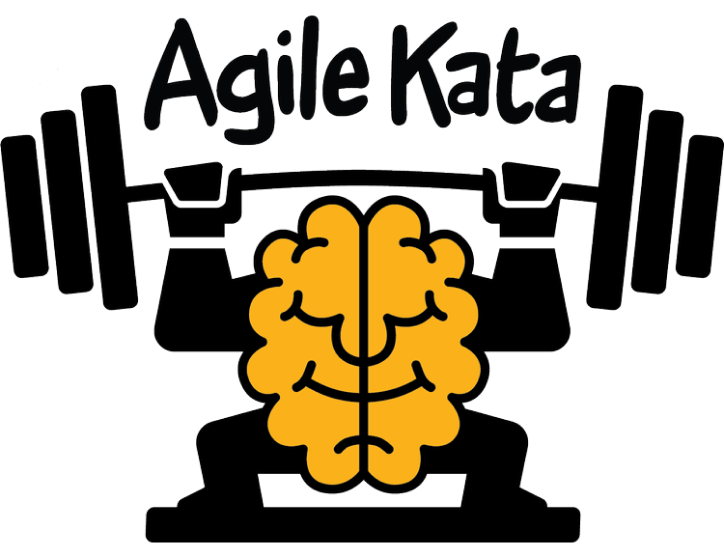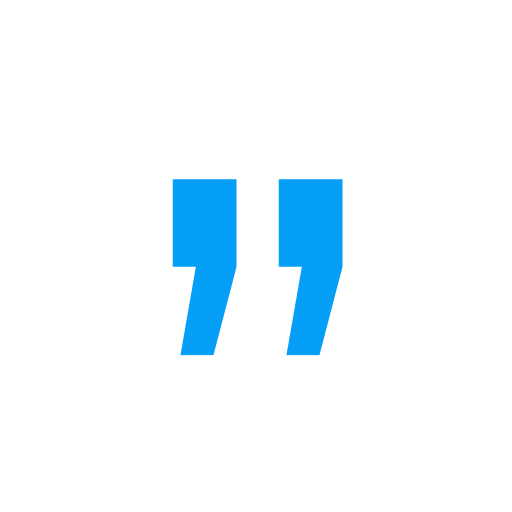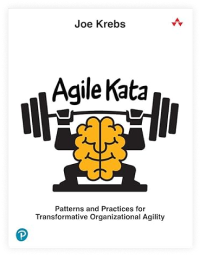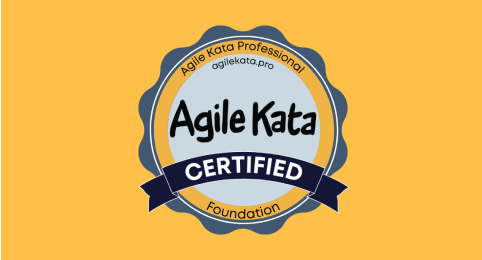Agile Kata
The Agile Kata Assessment helps leaders, coaches, and teams evaluate their current agility, identify improvement opportunities, and foster a culture of scientific thinking and experimentation. Unlike common frameworks, that define rules, roles, events and artefacts, the Agile Kata is a universal pattern for driving continuous agile improvement. The Agile Kata lets you tackle your unique business goals and challenges and helps you find ways to maximize business value, increase innovation and quality.
Created by:

Discover how the Agile Kata can guide your journey toward lasting agility and meaningful impact.
The Agile Kata Assessment is designed for leaders, coaches, change agents and entire agile teams seeking a structured, adaptable approach to continuous improvement. Unlike existing frameworks or processes, the Agile Kata is a universal pattern that empowers teams and organizations to drive iterative change aligned with their unique goals.
This assessment helps you evaluate your current agility, uncover improvement opportunities, and foster a culture of scientific thinking, experimentation, and sustainable growth.
Start your journey toward lasting agility today by taking the Agile Kata Assessment!
The Agile Kata assessment helps teams and organizations save time by providing a clear, structured approach to identifying agility gaps and opportunities for improvement.
It promotes smarter, evidence-based decisions by fostering scientific thinking and prioritizing impactful changes, ensuring efforts are focused where they matter most.
Beyond short-term fixes, this assessment drives sustainable cultural and operational transformation, creating a foundation for continuous improvement and long-term adaptability.


I had the privilege of witnessing the transformative power of continuous improvement firsthand at PatientKeeper, where we adopted early forms of these practices that contributed to a remarkable increase in both employee engagement and organizational performance. These experiences reinforced my belief that the Agile Kata is not just another tool—it is a critical mindset shift that every Agile practitioner should embrace.
Jeff Sutherland, Co-Creator of Scrum and Scrum@Scale
Sample Questions
Jobs and role structures support the way people really work.
There are robust feedback loops that enable everyone to steer and make corrections.
Teams know how to handle disagreements.
Business and technology directions are understood.
People understand what difference the organization makes for customers.
Teams know what they can decide and which decisions call for conversation outside the team.
Teams, customers, and managers share a definition of done.
Managers at all levels understand team and organizational capacity.
The same ethical standards apply to people at all levels.
Top Features
Get useful information about how your teams and organization works at different levels, helping you make smart decisions.
See how your teams and organization's agility compares to others in your industry, so you can learn from the best.
Let your teams share their thoughts on how to make your organization better, giving everyone a say in the process.


